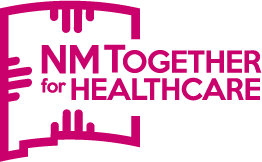More New Mexicans will have access to affordable healthcare, according to recent study
ALBUQUERQUE–New Mexico’s overall uninsured rate, household and employer spending on healthcare, and hospital’s uncompensated care costs could all drop significantly if a new healthcare coverage option called Medicaid Forward is implemented in New Mexico, according to a report recently released by the New Mexico Office of the Superintendent of Insurance (OSI). The results of this study will help inform the New Mexico Human Services Department (HSD), who the Legislature tasked with studying and designing a healthcare coverage option that will allow New Mexicans who currently do not qualify for Medicaid to instead purchase an affordable plan through the program with income-based premiums and copays.
“Medicaid Forward is going to help a lot of people like me. When I had health insurance through a previous employer, my copays were still unaffordable and I couldn’t always afford to seek the care I needed. During the pandemic I was enrolled in Medicaid, but when the public health emergency ended I made just over the income limit and was no longer eligible. I didn’t have another affordable option,” said Cecilia Piñon, with New Mexico Together for Healthcare. “With Medicaid Forward, I would have been able to purchase an affordable plan through the program, keep my coverage and get the medical care I need.”
Currently, to qualify for Medicaid, an adult must make less than $20,120 annually for a single person household, which is less than the minimum wage for a full-time worker. During the COVID-19 Public Health Emergency, Congress required that states’ Medicaid programs keep people continuously enrolled. That requirement ended this year, and now over 60,000 New Mexicans have lost their health insurance. Rather than having a strict income cut-off, Medicaid Forward would provide an opportunity for individuals to maintain coverage through affordable income-based premiums–which could have prevented the massive losses of coverage we are seeing due to the end of the public health emergency.
The study shows that nearly six in ten (58.7%) uninsured New Mexicans overall would gain access to healthcare coverage through this plan. New Mexico would have one of the lowest uninsured rates in the country (5.4-6.1%).
Almost every region in New Mexico would see their uninsured rates cut in half—with five regions seeing their uninsured rates drop by more than 60% (Doña Ana County by 67.6%; North Central NM by 63.9%; Valencia, Bernalillo East Mountains, and Isleta Pueblo by 62.1%; Albuquerque by 61.9%; and Far Southeast NM by 61.5%).
The study also found lower costs for families and employers:
- Household spending on healthcare could drop by 37.9% (saving up to $1.2 billion), with spending cut nearly in half for families with low incomes.
- Employer costs for healthcare could go down by a total of $229 million ($154 million for large employers and $75 million for small employers).
- Wages statewide could go up by a total of $874 million.
Medicaid Forward would also provide New Mexico with significant resources to pay healthcare providers more. Medicaid Forward would use existing federal law to draw down an influx of federal funding. During the 2023 legislative session, New Mexico substantially increased provider reimbursement rates under Medicaid—in some cases much more than Medicare pays providers. With additional federal funding through Medicaid Forward, New Mexico could increase Medicaid’s provider reimbursement rates across the board to 130-140% of Medicare’s rates. With more New Mexicans covered, providers would incur significantly less in uncompensated care, which would drop by over $100 million.
“The results of this study are incredible. We know that a major problem is that the healthcare system is fragmented and complex with many different programs and different eligibility requirements that people have to navigate, which can change based on life circumstances,” said Nicolas Cordova, healthcare director of the New Mexico Center on Law and Poverty. “Medicaid Forward is an innovative program that will strengthen the Medicaid program and close many of the coverage gaps so many of our families fall into.”
Access to affordable healthcare is a racial justice issue. Black, Indigenous, Hispanic, and Asian community members face disproportionate barriers to affordable health coverage and have worse health outcomes because of it. The report says the Medicaid Forward program would slash uninsured rates in these communities and between 130,000 and 142,000 people could gain access to affordable healthcare.
- For Hispanic New Mexicans, the uninsured rate could drop by 60.4% (81,000 get covered)
- For Black, non-Hispanic New Mexicans, the uninsured rate could drop by 60.7% (nearly 1,600 get covered)
- For Asian/Pacific Islander New Mexicans, the uninsured rate could drop by 64.5% (nearly 2,000 get covered)
- For Native American New Mexicans, whose uninsured rate is currently highest at 1 in 5 or (21.2%), the uninsured rate could drop by 49.6% (26,000 get covered)
Medicaid Forward would also encourage New Mexicans to access needed medical care. A recent survey found that 59% of New Mexicans reported delaying or avoiding care solely because of cost. Because Medicaid Forward would have significantly lower out-of-pocket costs, New Mexicans would be able to afford and therefore access the care they need when they need it.
“As a physician, I can’t think of a better way to efficiently increase access to healthcare in our communities. When patients are able to afford their healthcare, they are less likely to wait for their conditions to worsen and become life-threatening and costly emergencies,” said Anjali Taneja, MD MPH, Executive Director, Casa de Salud. “Our communities, workforce, and state benefit from everyone being able to access affordable healthcare.”
The non-partisan research firm Urban Institute conducted the study for OSI. The Human Services Department will also conduct a comprehensive study of the plan and present a proposed program design by October 2024, after which time the Legislature will determine whether to move forward with appropriation and implementation.
The complete report can be found here: https://www.osi.state.nm.us/osi-affordability-and-accessibility-research-projects
For media inquiries, contact Paloma Mexika at 505-305-2559 or paloma@nmpovertylaw.org.

